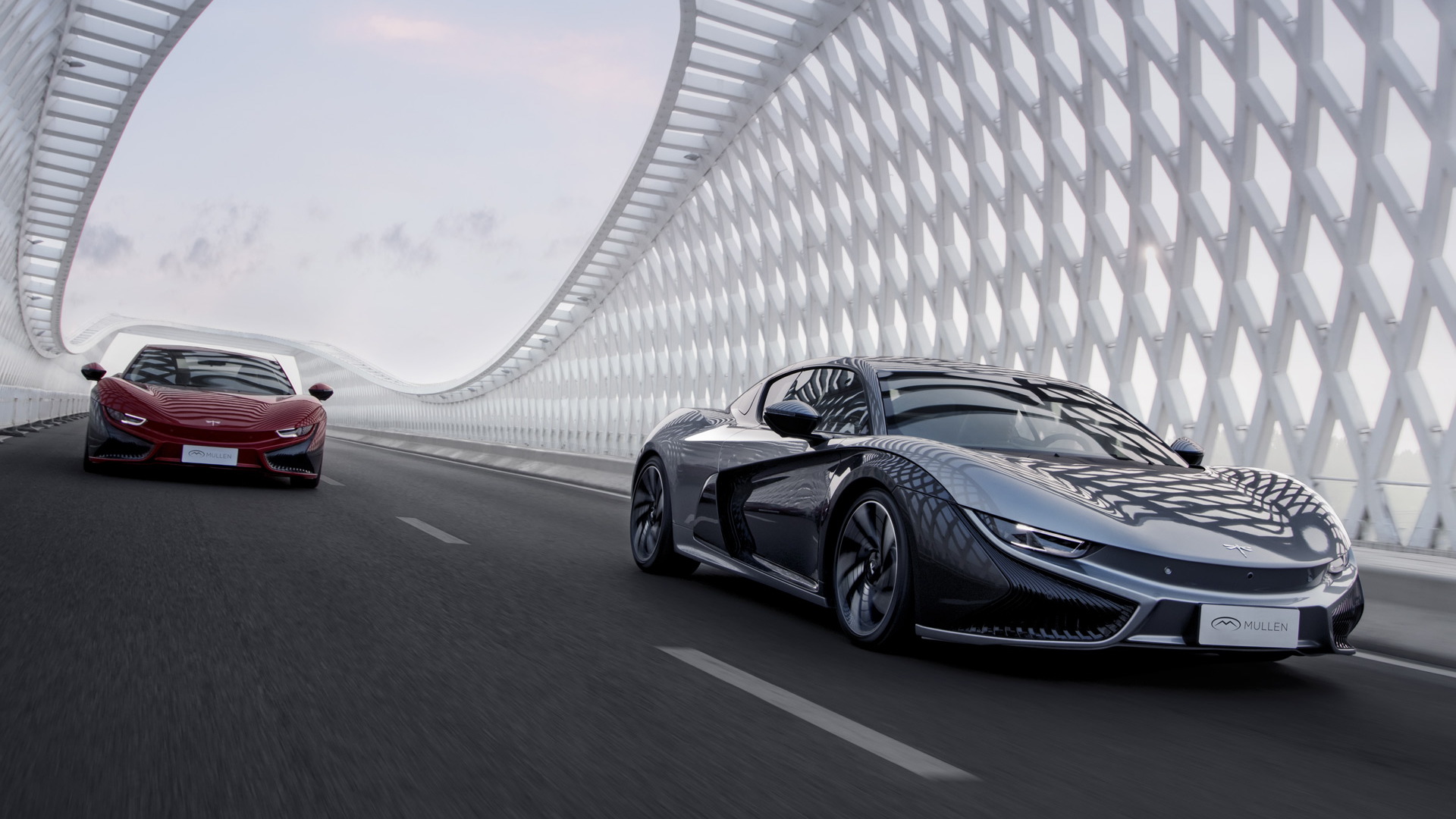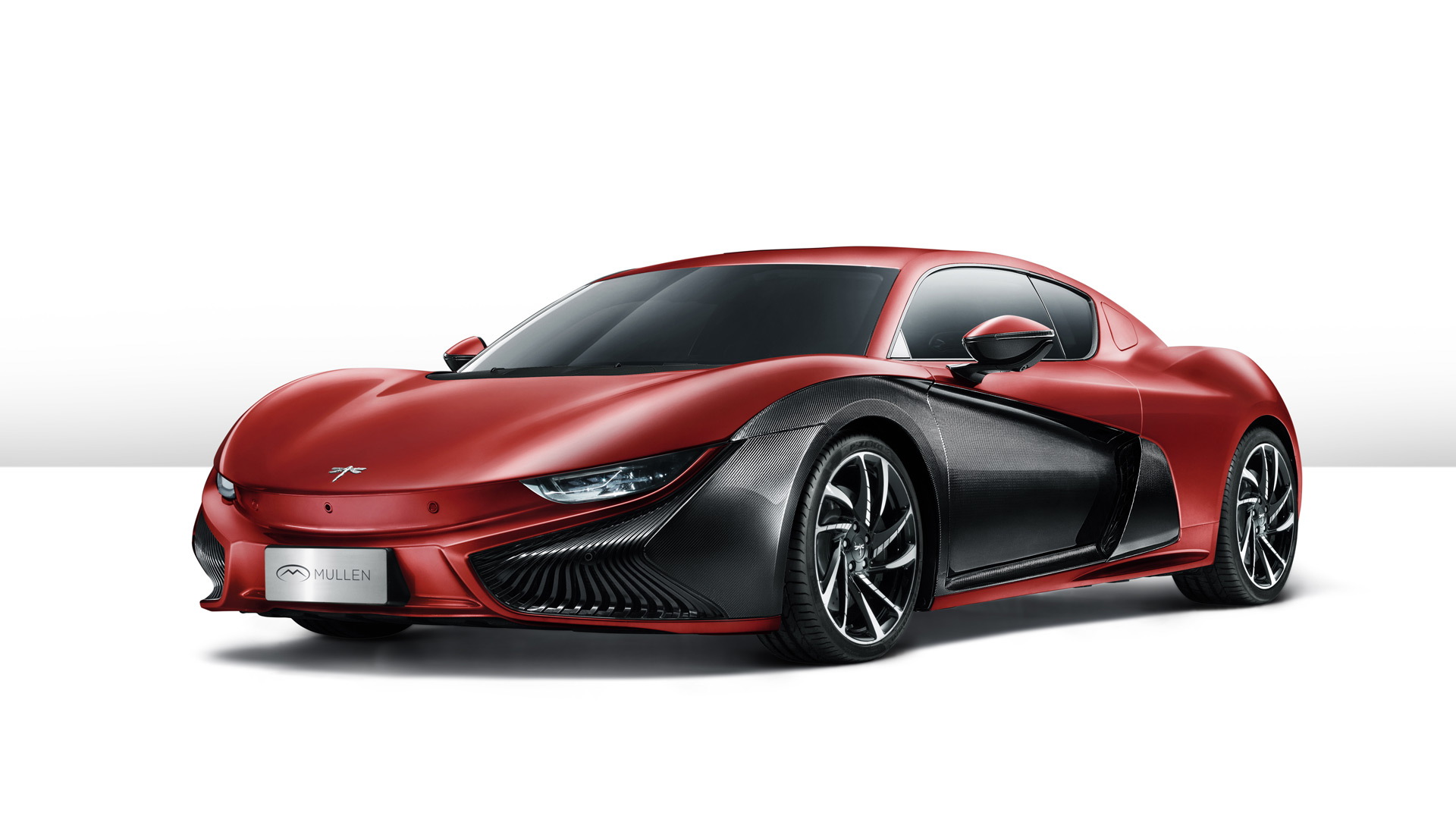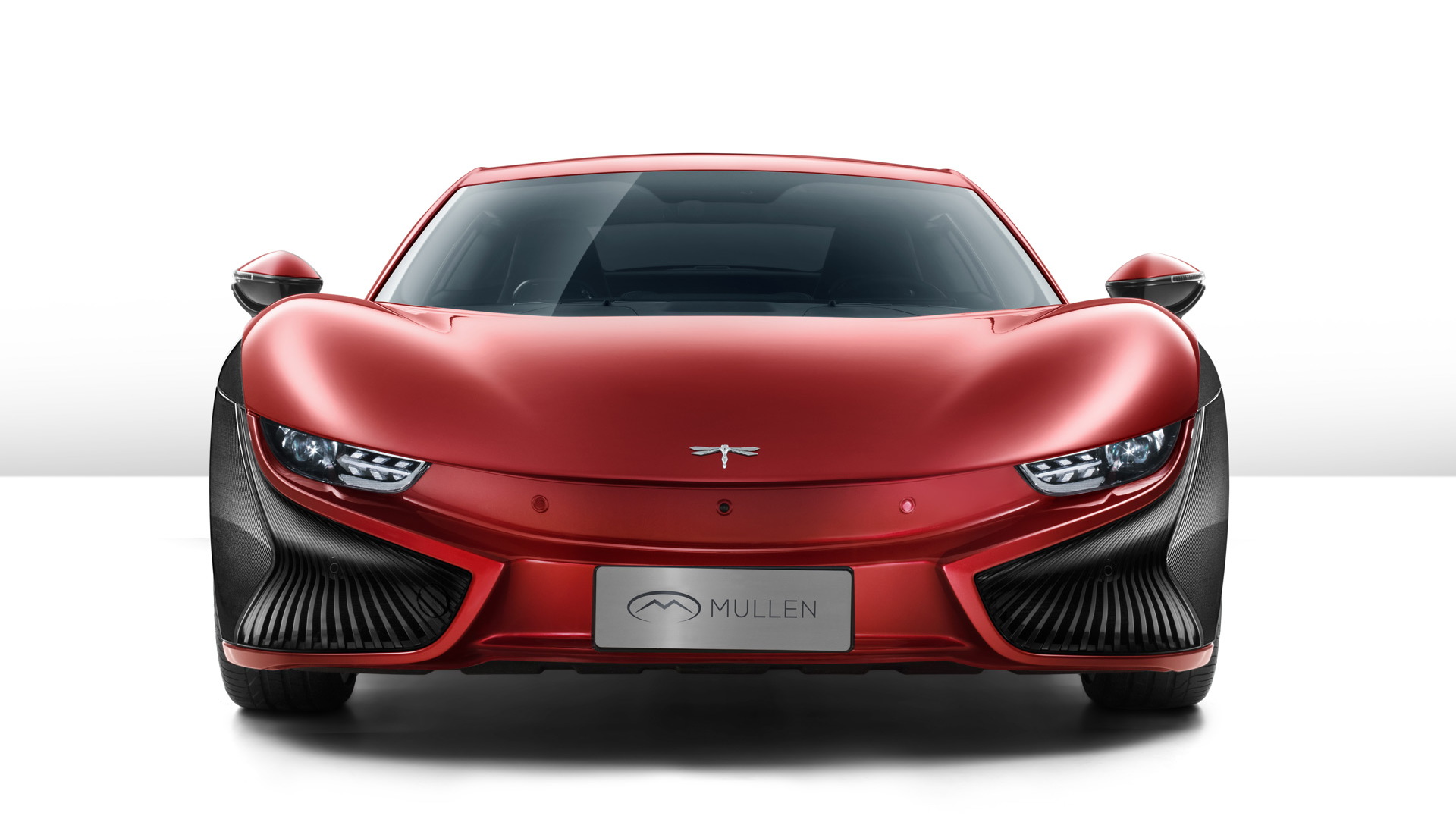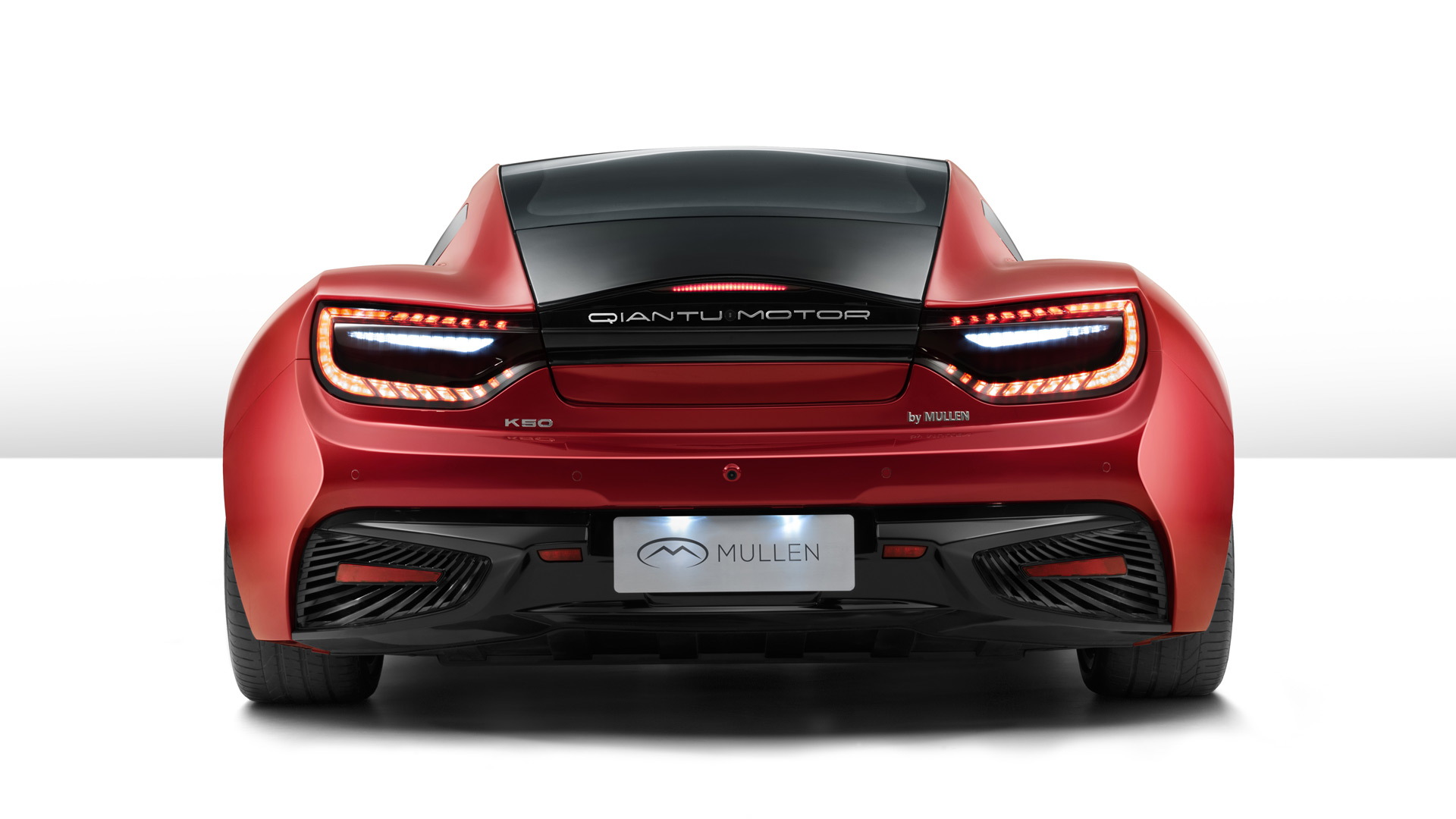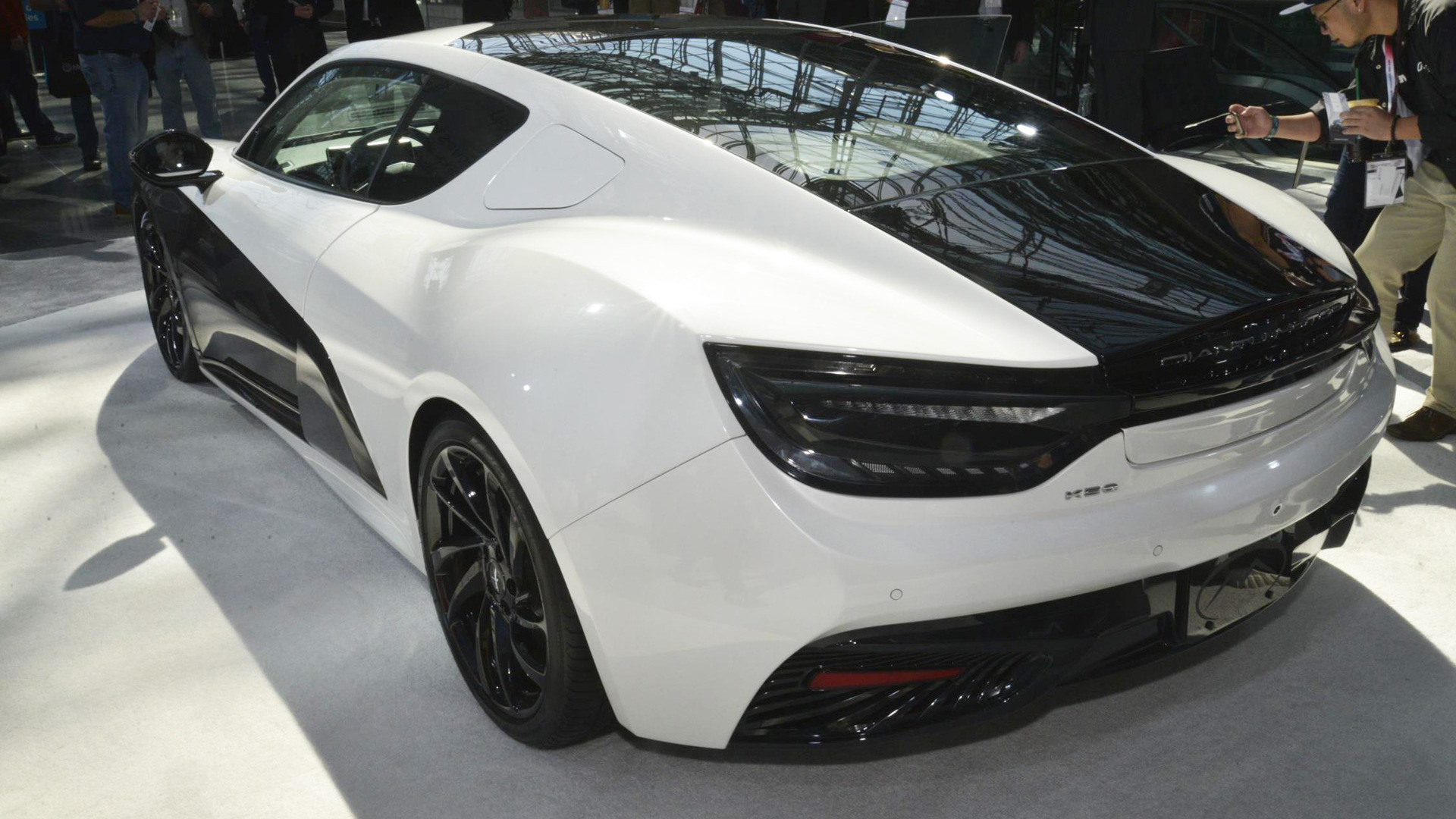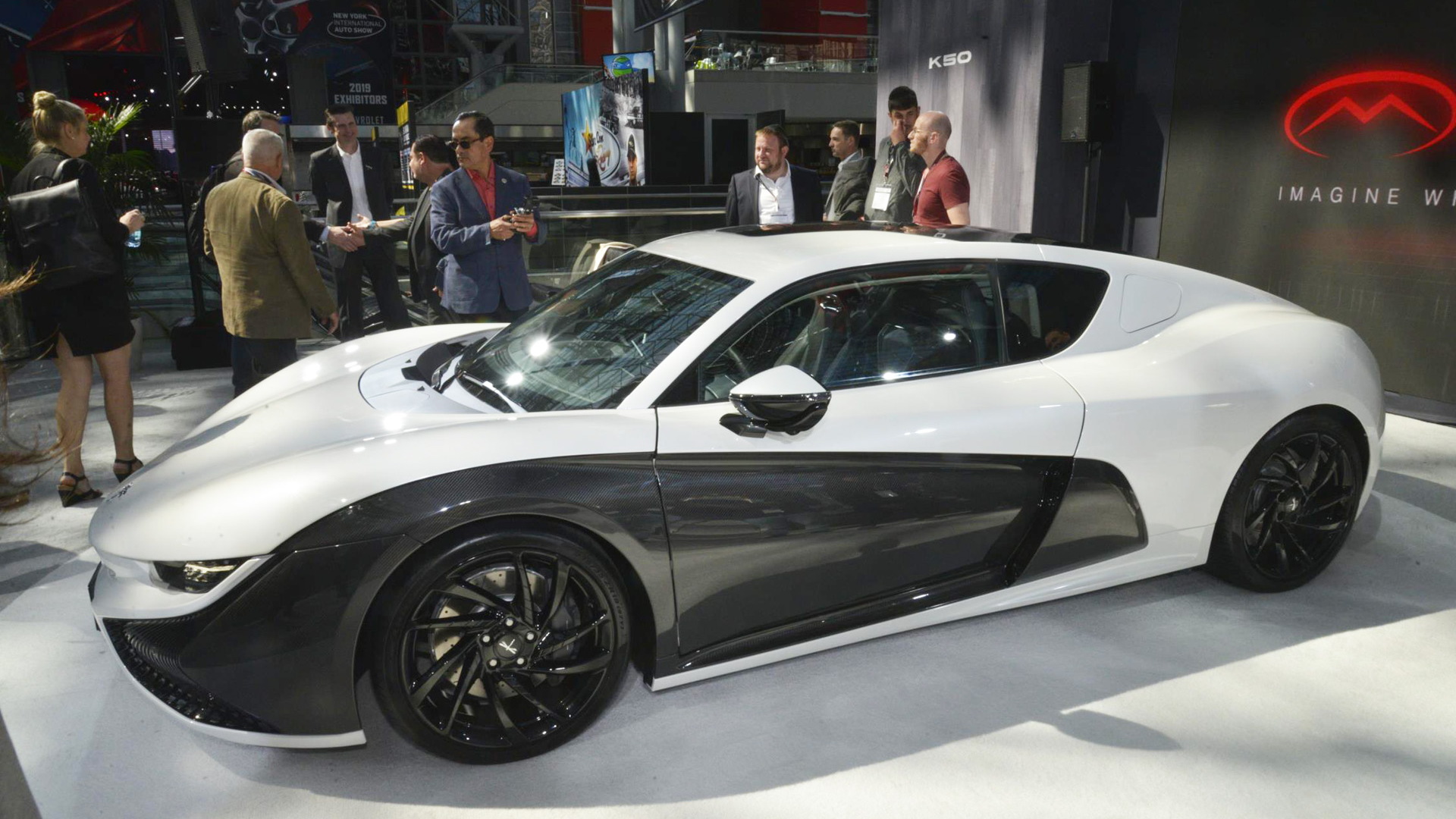California-based Mullen Technologies wants to do more than sell the swoopy Qiantu K50 electric coupe it teased at the New York Auto Show last year.
Mullen maintains that model will arrive in the U.S.—in the second quarter of 2021. But it now also plans to sell a battery electric SUV, called the MX-05, in the second or third quarter of 2021.
The initial delivery of several hundred units of the SUV would be followed with a “kickoff into full production in 2022,” it reported last week in a press release. Following that, it said it has access to “a portfolio of competitively priced vehicles” on three platforms, all fully electric or range-extended electric.

Mullen MX-05 electric SUV
The aluminum-framed, carbon-fiber-bodied K50—also called Dragonfly K50—is a great-looking coupe that Green Car Reports saw in person (and sat in) at the 2019 NY show, when it was already being produced and delivered in China. With 430 horsepower from dual 160-kw permanent-magnet electric motors, it claims a 4.6-second 0-60 mph acceleration and a top speed of 125 mph.
Mullen has assured us that in its U.S. form the K50 will include Pirelli P-Zero tires and Brembo brakes—indicators of a commitment to performance. And its liquid-cooled 78-kwh battery pack can DC fast charge at up to 140 kw for a 40-minute charge. Last year, driving range was estimated between 150 and 200 miles by EPA cycles, although the company is now advertising a 236-mile range.
All of these models have a common thread: They are currently developed (or under development) and sold in China. Mullen claims that its business model reduces vehicle development from the industry-standard four years down to 17 months. Factoring in homologation, crash-testing, and DOT approvals, however, presents quite a task in that time window.
The K50 is produced in China by CH-Auto. Mullen planned to homologate the K50 for the U.S., but not as a mere importer or sales organization. Through a process carefully planned around trade rules, it aimed to effectively ship cars over in larger modules for final assembly near Spokane, Washington.
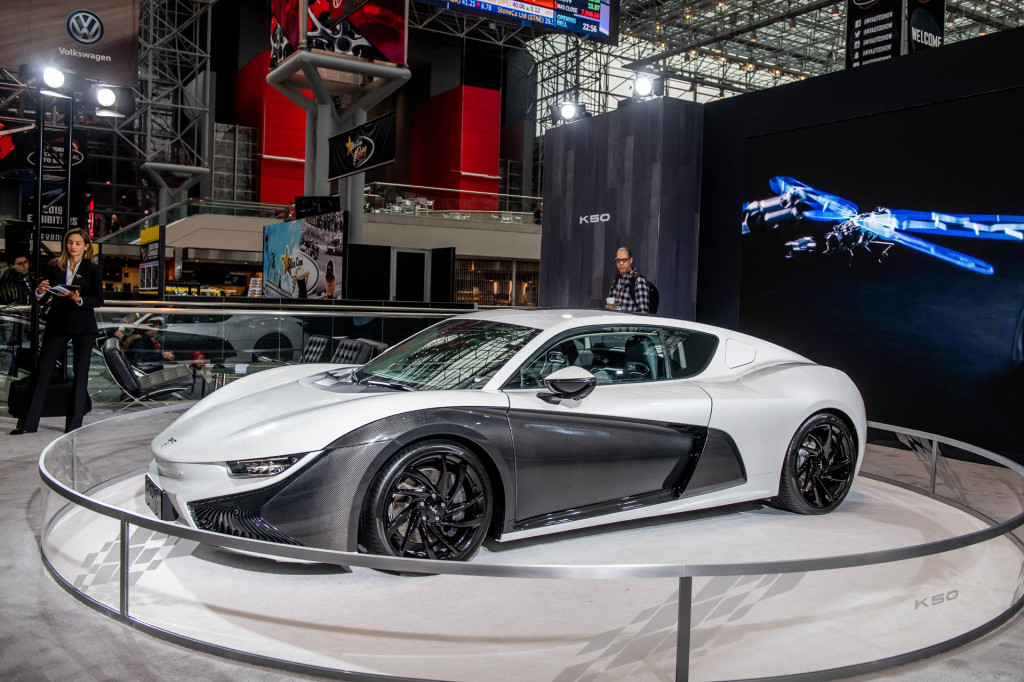
Qiantu K50 by Mullen, 2019 New York auto show
That facility, signaled by an April, 2019 letter of intent—to employ 55 workers to assemble the K50 starting this year, then employ up to 860 by 2026—hasn’t yet been created. And while the company was eager to note last year that its vehicles would be U.S. assembled, a recent release boasting of the company's plans made no mention of that—or the Washington facility.
Privately-held Mullen Technologies appears to be planning to fund this at least partly through the stock market. Mullen and publicly traded Net Element, a Florida-based payment-services company, have announced that they’ve entered a letter of intent to perform a “stock-for-stock reverse merger”—effectively creating a publicly traded Mullen.
Mullen already has a very different origin than other electric-vehicle startups. The company has eight brick-and-mortar used-car dealerships in California and one in Arizona, and it owns the car-sales site CarHub. All of these would be outlets for selling the new EVs.
Mullen also holds the intellectual property of the former electric-car startup Coda, and it has stated that while it has no intent to revive Coda’s designs, Mullen plans to use that company’s battery management system in upcoming EVs.
Green Car Reports has reached out repeatedly in recent days to see if pending tariff negotiations have affected the company’s manufacturing plans, who its Chinese partner company is for the MX-05 and other SUVs, and when its proposed merger will be complete. We’ll update this piece when we hear back.
